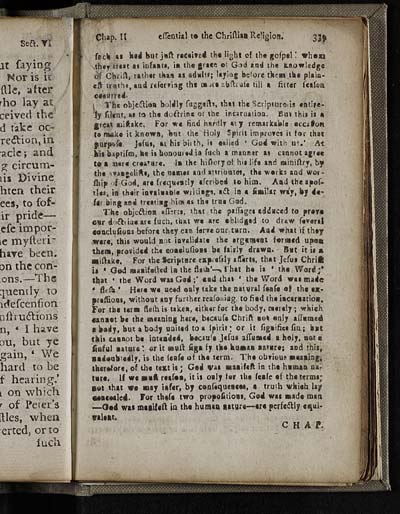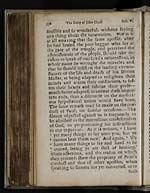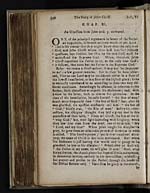1508-1800 > Divinity of our Lord and Saviour Jesus Christ
(345) Page339
Download files
Individual page:
Thumbnail gallery: Grid view | List view

Chap. II eſſential to the Chriſtian Religion. 339
ſuch as had but juſt received the light of the goſpel : whom
they treat as infants, in the grace of God and the knowledge
of Chriſt, rather than as adults; laying before them the plain-
eſt truths, and reſerving the more abſtruſe till a fitter ſeaſon
occurred.
The objection boldly ſuggeſts, that the Scripture is entire-
ly ſilent, as to the doctrine of the incarnation. But this is a
great miſtake. For we find hardly any remarkable occaſion
to make it known, but the Holy Spirit improves it for that
purpoſe. Jeſus, at his birth, is called ' God with us.' At
his baptiſm, he is honoured in ſuch a manner as cannot agree
to a mere creature. In the hiſtory of his life and miniſtry, by
the evangeliſts, the names and attributes, the works and wor-
ſhip of God, are frequently aſcribed to him. And the apoſt-
les, in their invaluable writings, act in a ſimilar way, by de-
fer bing and treating him as the true God.
The objection aſſerts, that the paſſages adduced to prove
our doctrine are ſuch, that we are oblidged to draw ſeveral
concluſions before they can ſerve our turn. And what if they
were, this would not invalidate the argument formed upon
them, provided the concluſions be fairly drawn. But it is a
miſtake. For the Scripture expreſsly aſſerts, that Jeſus Chriſt
is ' God manifeſted in the fleſh'—That he is ' the Word;'
that ' the Word was God ;' and that ' the Word was made
' fleſh ' Here we need only take the natural ſenſe of the ex-
preſſions, without any further reaſoning to find the incarnation.
For the term fleſh is taken, either for the body, merely; which
cannot be the meaning here, becauſe Chriſt not only aſſumed
a body, but a body united to a ſpirit : or it ſignifies ſin; but
this cannot be intended, becauſe Jeſus aſſumed a holy, not a
ſinful nature : or it muſt ſignify the human nature; and this,
undoubtedly, is the ſenſe of the term. The obvious meaning,
therefore, of the text is ; God was manifeſt in the human na-
ture. If we muſt reaſon, it is only for the ſenſe of the terms ;
not that we may infer, by conſequences, a truth which lay
concealed. For thoſe two propositions, God was made man
—God was manifeſt in the human nature—are perfectly equi-
valent.
CHAP.
Set display mode to:
![]() Universal Viewer |
Universal Viewer | ![]() Mirador |
Large image | Transcription
Mirador |
Large image | Transcription
Images and transcriptions on this page, including medium image downloads, may be used under the Creative Commons Attribution 4.0 International Licence unless otherwise stated. ![]()
| Scottish printing towns > 1508-1800 > Divinity of our Lord and Saviour Jesus Christ > (345) Page339 |
|---|
| Permanent URL | https://digital.nls.uk/74618350 |
|---|---|
| Description | Divinity of our Lord and Saviour Jesus Christ, cont. |
| Description | A product of the first printing press set up in Montrose. |
|---|---|
| Shelfmark | L.36.f |
| Additional NLS resources: | |

